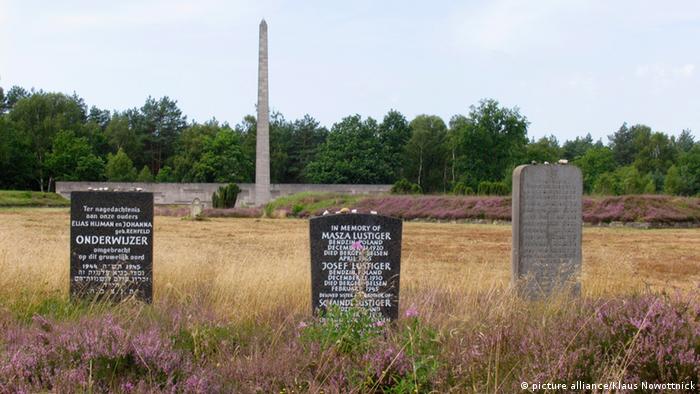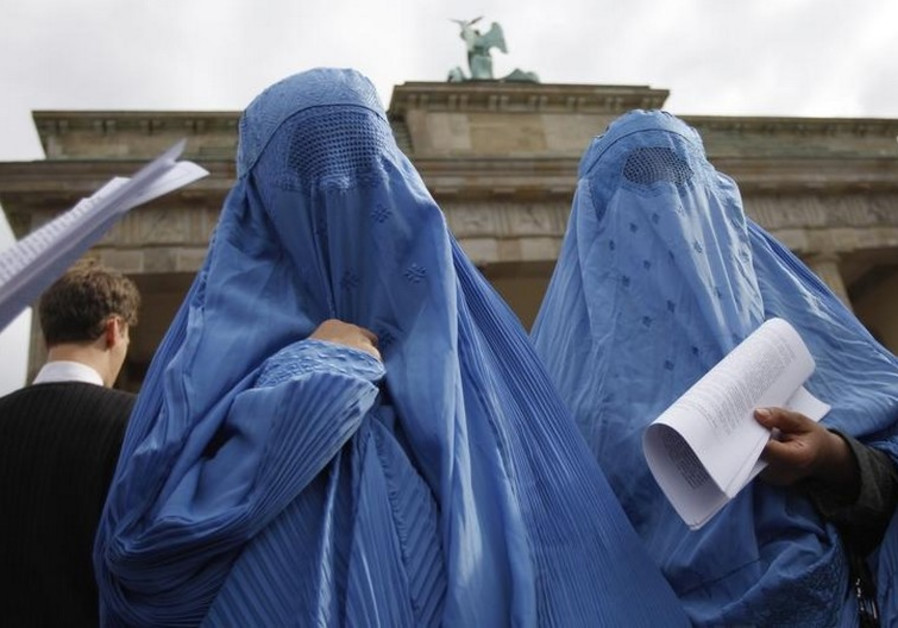Remembering the Holocaust
"We need to make our history relevant for everyone: Germans who no longer feel a connection to the past and immigrants who feel excluded from the present."
"It is a powerful way of keeping memory alive and giving meaning to our mantra of 'never again'."
"It's about standing up for human rights and the rights of minorities -- all minorities."
Sawsan Chebli, Palestinian German, Berlin state legislator
 |
| All Germans should visit a concentration camp at least once to foster national identity, a Berlin politician said Tom Maelsa/Getty Images |
"Does anyone here know who was imprisoned here?"
"It's much easier for me to persuade a young Muslim of the relevance of the Holocaust if I acknowledge their own experience of discrimination and create that link."
Mariana Aegerter, Sachsenhausen tour guide
"It would be naive to expect a two hour tour to turn neo-Nazis into anti-fascists."
"But give us a little time, and we can achieve a lot."
Gunter Morsch, director, Sachsenhausen memorial
"It's not enough to read books about it [the death camps and the Holocaust]. You need to feel it", by being there, explained Jakob Hetzelein, a history teacher from a working-class Berlin district who made the decision that his students should be taken on a trip of discovery to Sachsenhausen. He had himself grown up in Bavaria, the one state in Germany where it is mandatory for students to visit Nazi memorial sites. He had, as a high school student, gone to Dachau, close to Munich.
In later years he had taken himself to the Nazi death camp in Poland, Auschwitz. He recalls how the cast-iron gates, the barbed wire and the scale of the camp horrified him, and haunts him still, at age 31. He decided he would take the temper of his class by staging a mock election, where a number of students were in support of the Alternative for Germany party, another boy was seen scribbling a swastika and yet another excels at Hitler impressions.
 |
'Never Again': Memorials of terror Bergen-Belsen The Bergen-Belsen concentration camp in Lower Saxony was initially established as a prisoner of war camp before becoming a concentration camp. Prisoners too sick to work were brought here from other concentration camps, so many also died of disease. One of the 50,000 killed here was Anne Frank, a Jewish girl who gained international fame posthumously after her diary was published. |
There, in his class is also Mahmoud and Ferdous, refugees from Egypt and Afghanistan respectively steeped in the cultural-religious anti-Israel sentiment encapsulating the anti-Semitism that is so pervasive in Muslim culture, along with a penchant for vociferous Holocaust denial. But postwar Germany has devoted itself to memorializing its role in World War II, as a state that engaged in the details of a planned and deliberate atrocity of wholesale genocide.
The irony is that while Germany is struggling to incorporate over a million recent refugees from mostly Muslim countries into its indigenous population of ethnic, cultural Germans infused with a previous absorption of four million Muslims of Turkish and Kosovar and Iraqi extraction among others, the incidence of viral anti-Semitism has sky-rocketed.
A Germany that had vowed, post WWII, to eradicate any remaining vestiges of anti-Semitism in penance for the Nazi eradication of six million European Jewish lives now has six million Muslims to replace them.
The Jewish lives that were forfeit throughout Europe as they were swallowed by the deadly maw of Nazi Germany's dedication to destroying Jewish life, young and old, now replaced by many times greater numbers of Muslims whose heritage, culture, society and religion fail to defer to European law, demanding that Sharia law have equal status, while Turkey and Saudi Arabia have built innumerable mosques whose minarets dominate the European skyline.
As Ms. Aegerter guided Mr. Hetzelein's students around the Sachenhausen camp she pointed out that in one area civil servants determined the type of medical experiments to be conducted on inmates, and how many executions were to take place, requiring how much cyclone B gas to asphyxiate the inmates of Auschwitz, the "desk perpetrators" hard at work to fulfill their war duties administering the two dozen major concentration camps of which Sachsenhausen was the nerve centre of a vast killing machine.
It was a camp that received 40,000 Jews, along with communists, clerics, homosexuals, Roma and the disabled, as well as homeless "antisocials"; the jobless, social welfare recipients and the occasional Muslim, for a total of 200,000 inmates over the years. A number relatively insignificant in comparison to those housed at and murdered in Auschwitz and its sister-death-camps and slave labour camps where Jewish inmates died of starvation, privation, disease, torture and hopelessness, not only by mass chemical gassing.
A Palestinian schoolgirl asked Ms. Aegerter: "Don't you think that what the Jews are doing with the Palestinians today is the same as what the Nazis did with the Jews?" Germany, according to the state parliamentarian Ms. Chebli, has to fight 'Islamophobia', too. The very idea that the Muslims who have migrated to Europe for haven from their own Islamic governments' misrules and depredations upon their populations bring with them virulent hatred of Jews while complaining of 'Islamophobia' entirely trivializes the enormity of the Holocaust.
To remain under the delusion that a trip to a death camp will result in Muslim children in whom hatred for Jews has been inculcated as a cultural-religious-political reality alongside the view that Israel practises Nazi death-camp behaviour with Palestinians will turn these young people toward an understanding and recognition of historical truth is a faint hope. German tolerance for the new anti-Semitism branded by Islam, equating it with 'Islamophobia' simply illustrates the lack of depth of commitment to historical realities.
 |
| Women dressed in traditional burqa garments in Berlin. (photo credit: REUTERS) |
Labels: Anti-Semitism, Germany, Holocaust, Immigration, Memorials, Muslims

<< Home